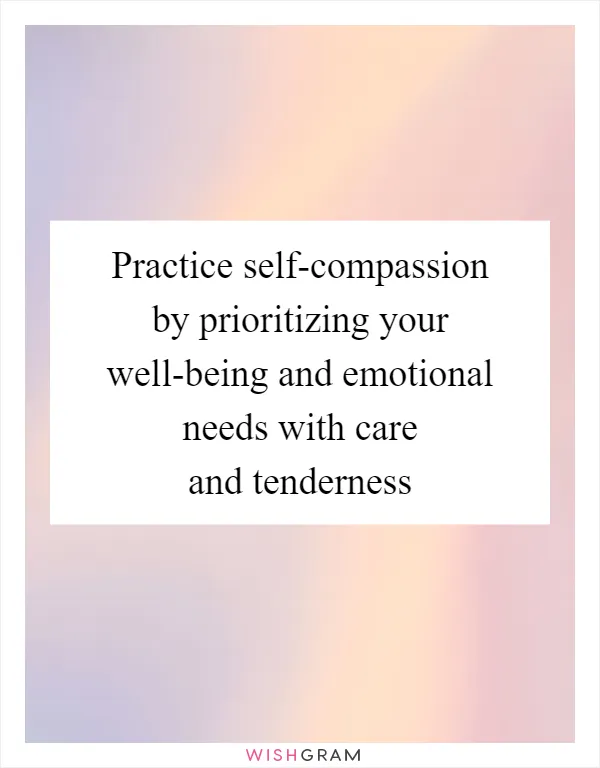Practice self-compassion by prioritizing your well-being and emotional needs with care and tenderness
Self-compassion is a vital aspect of self-care that often gets overlooked in our busy lives. It involves treating yourself with the same kindness and understanding that you would offer to a close friend in times of need. Prioritizing your well-being and emotional needs with care and tenderness is essential for maintaining a healthy relationship with yourself.
It is important to remember that self-compassion is not about being self-indulgent or selfish. It is about recognizing your own humanity and accepting yourself as you are, flaws and all. By acknowledging your own struggles and treating yourself with compassion, you can cultivate a sense of inner peace and resilience that will help you navigate life's challenges with grace and strength.
Practicing self-compassion involves being mindful of your thoughts and feelings, and responding to yourself with kindness and understanding. It means giving yourself permission to take care of your own needs and setting boundaries that protect your emotional well-being. It also involves being gentle with yourself when you make mistakes or face setbacks, and recognizing that you are worthy of love and compassion just as you are.
One way to practice self-compassion is to engage in self-care activities that nourish your mind, body, and spirit. This could include taking time to relax and unwind, engaging in activities that bring you joy, or seeking support from loved ones when you need it. It could also involve setting aside time for self-reflection and introspection, and being honest with yourself about your own needs and desires.
Another important aspect of self-compassion is learning to be kind to yourself in moments of pain or suffering. Instead of criticizing yourself or engaging in negative self-talk, try to offer yourself words of comfort and reassurance. Remind yourself that it is okay to feel sad, angry, or anxious, and that you deserve to be treated with compassion and understanding.
